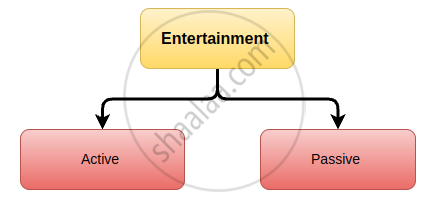Topics
Historiography : Development in the West
History : Applied History
Working of the Constitution
Historiography : Indian Tradition
The Electoral Process
Political Science : Working of the Indian Constitution
Applied History
Political Parties
History of Indian Arts
- What is ‘Art’?
- Indian Traditions of Visual Arts (Drik Kala): Painting
- Prehistoric Paintings
- Mural Paintings and Cave Painting
- Folk Styles of Paintings
- Classical Styles of Painting
- Miniature Paintings in Manuscripts
- Modern Indian Paintings
- Indian Traditions of Visual Arts (Drik Kala): Sculpture Art
- Indus Civilization Sculpture
- Folk Styles of Sculptural Art
- Classical Styles of Sculptural Art
- Indian Iconography
- Indian Traditions of Visual Arts (Drik Kala): Architecture and Sculpture
- Rock-cut Architecture
- Temple Architecture
- Indo-Islamic Architecture
- Indo-Gothic architecture
- Indian Traditions of Performing Arts
- Indian Theatre
- Indian Music
- Indian Dance
- Present Scenario of the Performing Arts
- Art, Applied Art, and Professional Opportunities
Social and Political Movements
- Movement
- Important Movements in India
- Tribal Movement
- Farmers Movement
- Worker's Movements
- Women’s Movement
- Environment Movements
- Consumer Movement
Mass Media and History
Challenges Faced by Indian Democracy
Entertainment and History
Sports and History
Tourism and History
Heritage Management
History - Imperialism
History - 20th Century Age of conflict
History - Emancipation of Asia and Africa
History - World after World War 2
Political Science
Geographical discoveries and colonization
- Concept for Geographical Discoveries and Colonization
Africa
- Imperialism - Africa
Asia: India, China, Japan
- Concept for Asia: India, China, Japan
Dictatorships in Europe, Second World War and world
- Concept on Dictatorships in Europe
- Concept for Second World War and World
First world war
- Concept on First World War
The League of Nations
- Concept for the League of Nations
Russian Revolution
- Concept for Russian Revolution
United Nations Organization
- Concept for United Nations Organization
Africa
- Emancipation of Africa
Asia
- Emancipation of Asia
Globalization
- Globalization After World War II
Scientific and Technological Progress
- Scientific and Technological Progress After World War II
Cold war
- Formation of the Cold War
Social Diversity and Democracy
- Social Diversity
- Coccept for Caste/Race and Democracy
- Concept for Language and Democracy
- Cocnept for Religion and Democracy
- Concept for Gender and Democracy
- Concept for Democracy and Diversity
Challenges to Democracy Remedial Measures to the Challenges
- Concept for Challenges to Democracy Remedial Measures to the Challenges
Internal work
Democracy
- Democracy - Meaning, Types and Characteristics
Political Parties and Types
- Political Parties
- Importance of Political Parties
- Major National and Regional Parties in India/ Types of Political Parties
Notes
Entertainment:
- Entertainment is a form of activity that holds the attention and interest of an audience or gives happiness and delight.
- The sources of enjoyment include various pastimes like video games, dramas, films, writing, reading, etc.
Need for Entertainment:
- You can use entertainment to distract yourself from the stress factors in your life. When you engage in entertaining or enjoyable activities, your body produces endorphins. This chemical is known to lessen stress and pain.
- Culture and entertainment have a close relationship. Many enjoyable activities have helped to shape community culture.
- From street performers to artists working on movies and selling out arenas, the entertainment industry provides employment opportunities.
- When you are more productive, you will be able to achieve greater goals and will notice an improvement in your self-esteem.
- Entertaining programs or activities can divert your attention away from boredom or stress. They can lift your spirits and bring joy to your life.
- When you participate in activities such as sports, music, drama, and dance, you can make more friends. This improves both social communication and team-building abilities.
Categories of Entertainment:
 |
|
|
Active Entertainment |
Passive Entertainment |
|
1. |
Individual’s mental-physical participation |
A person is not participating in the actual sense but only playing the role of a viewer. |
|
2. |
For example: Practicing handicrafts and participating in sports activities |
For example: Watching a movie or listening to music is called passive entertainment. |
If you would like to contribute notes or other learning material, please submit them using the button below.
